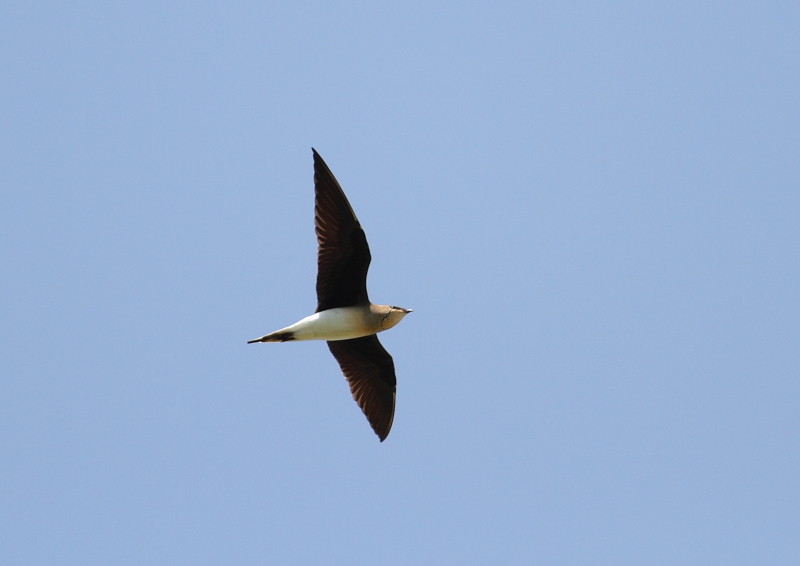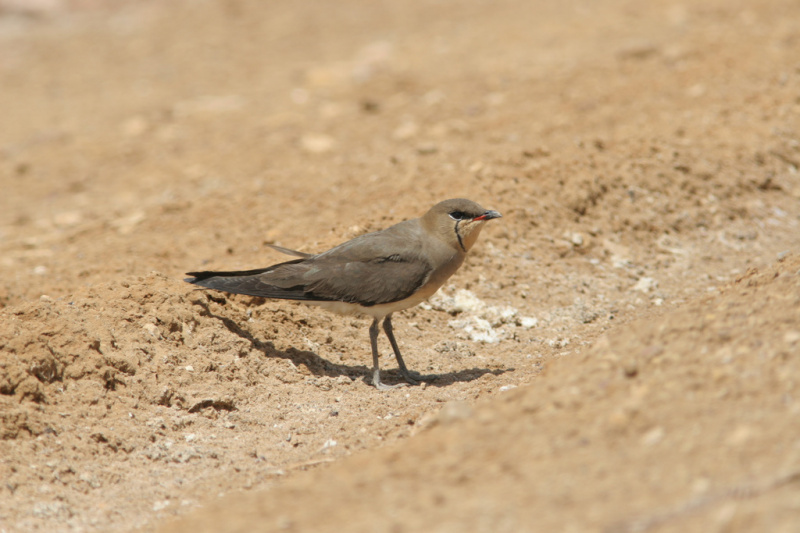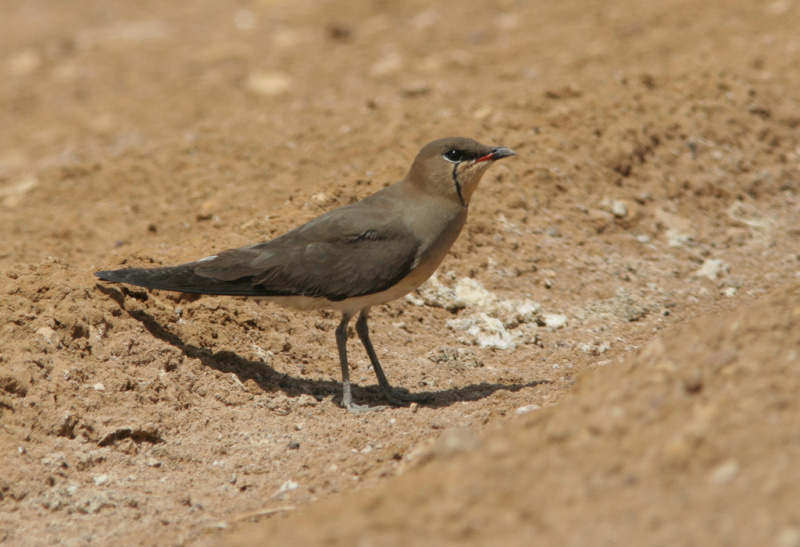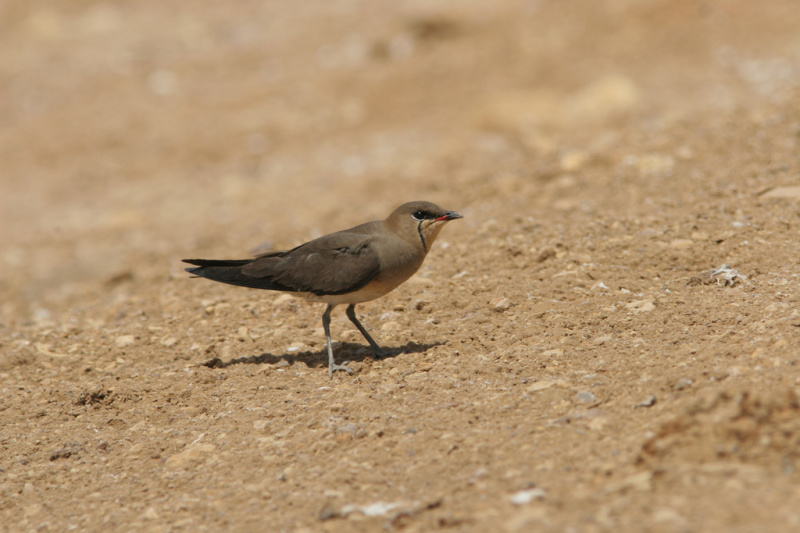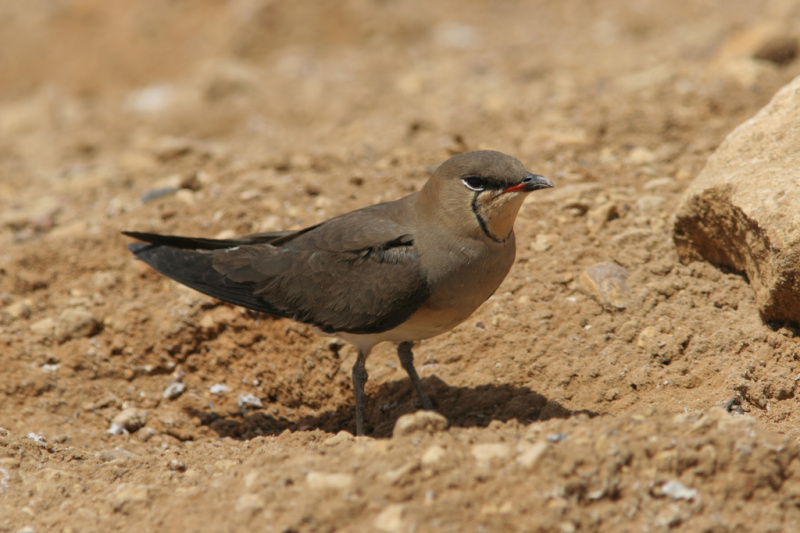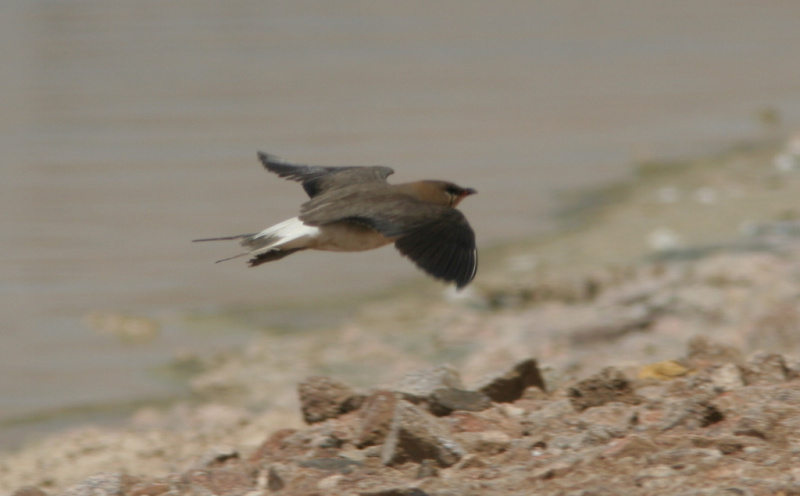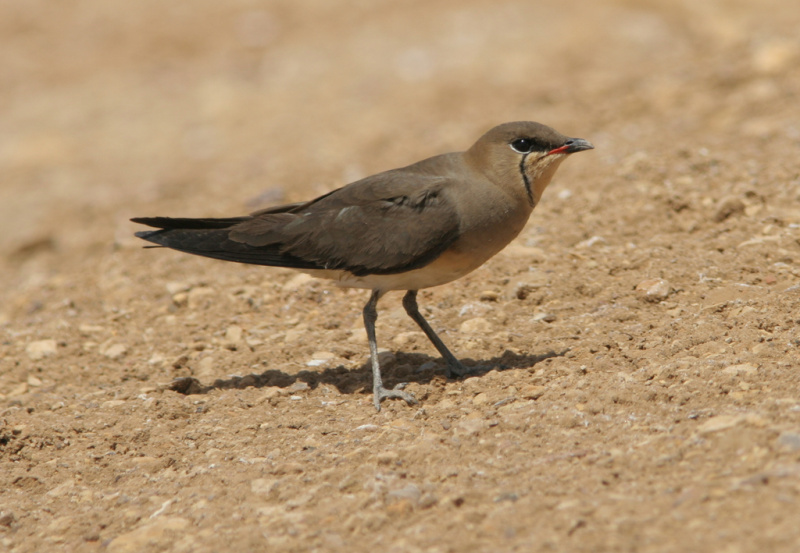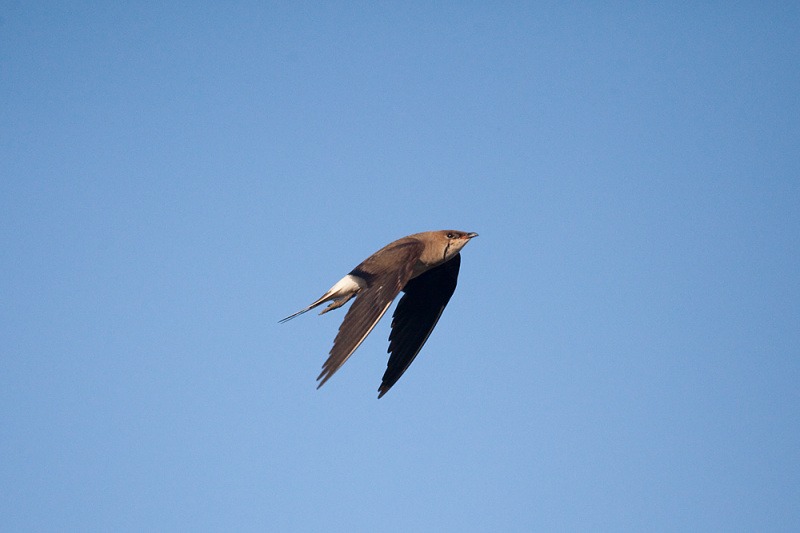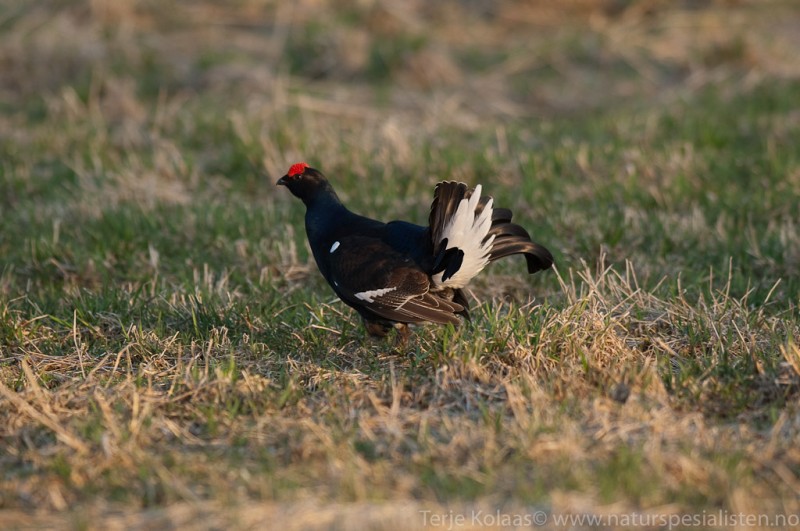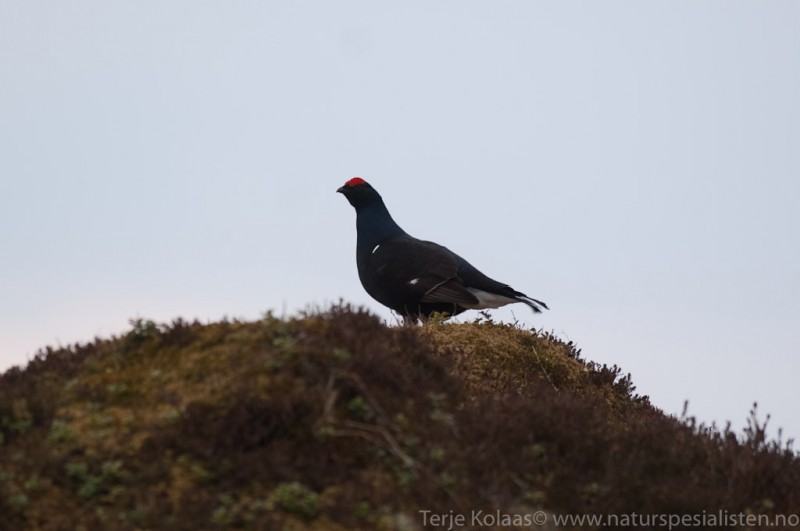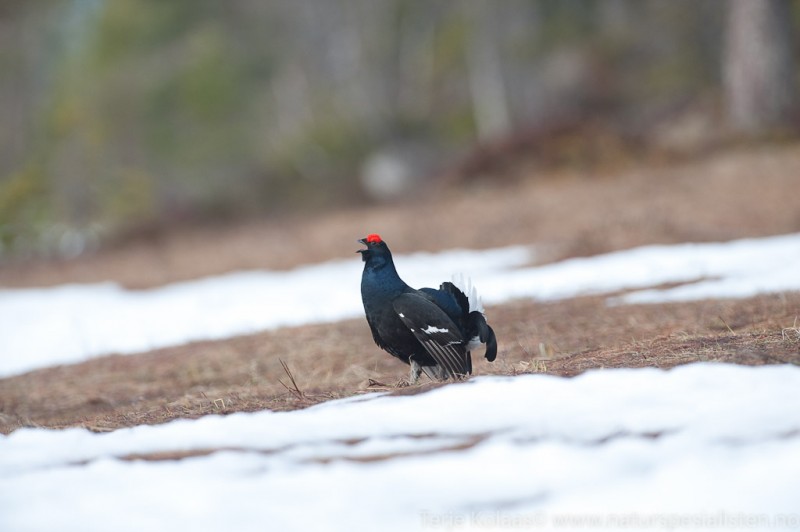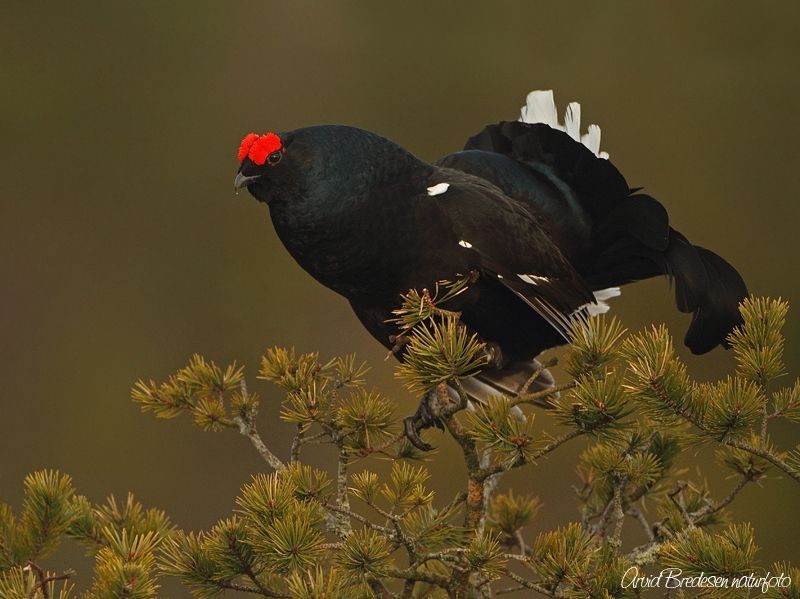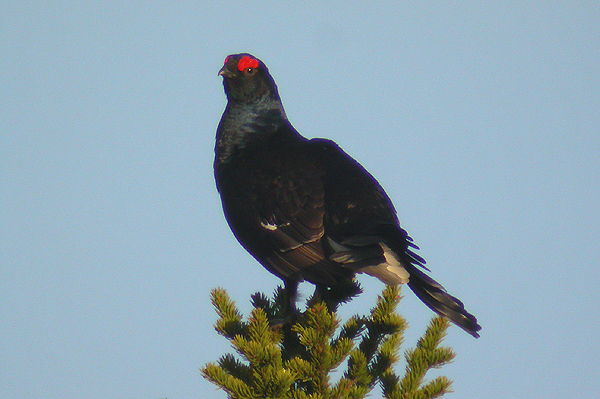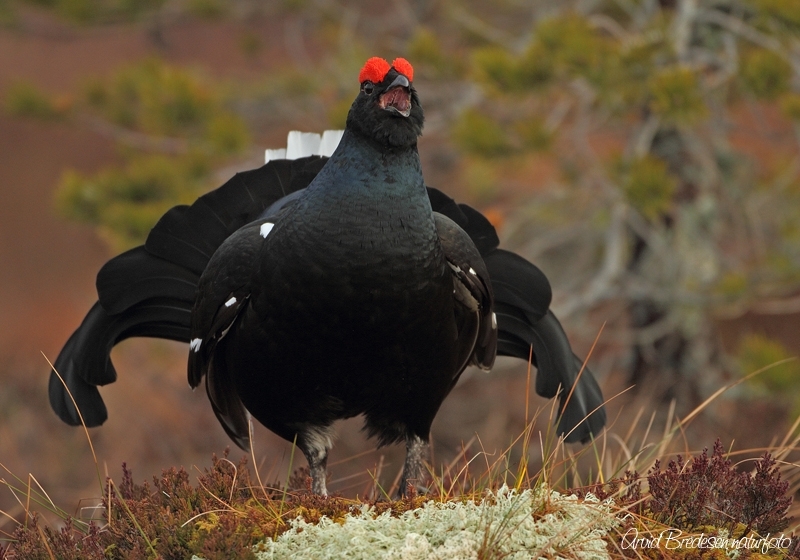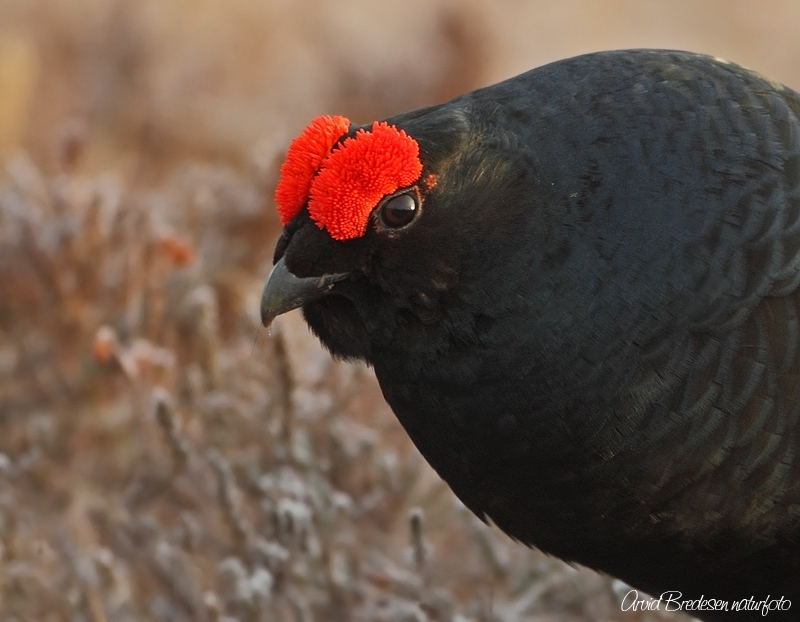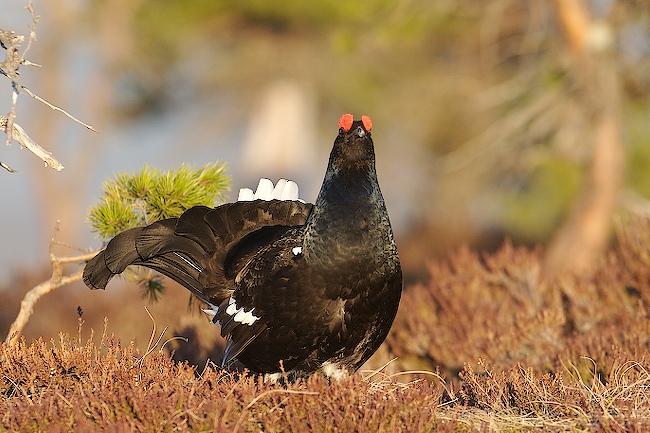Black-winged Pratincole (Glareola nordmanni)
Black Grouse (Lyrurus tetrix)
Only likely to be confused with other pratincoles, but diagnostic field marks often difficult to see. Differs from Collared Pratincole by black underwing and lack of white trailing edge to upperwing (both characters requires good light). Tail streamers shorter than wing-tips and base of bill with less red (in breeding plumage). Build slightly stockier than Collared Pratincole, with longer legs. Lore and forehead often darker. Sexes alike. Lacks black necklace in winter plumage. Immature birds are similar to winter-plumaged adults, but with additional scaly upperparts. A third species, Oriental Pratincole, is a rare vagrant with rufous underwing, no wing-bar, and even shorter tail.
Sound:Also see Collared Pratincole. Differs from latter by the hard parts being dryer, more clicking and staccato, while the more melodic components are more mewing. Like with Collared Pratincole beware confusion risk with Little Tern, which is similar in timbre.
Various calls:
Distribution:
Xeno-canto: map
Ecology:Birdlife ecology
Links:
Observation.org Latest observations
Image search Flickr NB! May give other species
CCCC-sound:Vladimir Arkhipov, Licence,Link.
CC-photo:Ignaas Robbe, Licence,Link.
CC-photo:maholyoak, Licence,Link.
Male differs from Capercaillie in smaller size, stockier build, curled outer tail-feathers and pure white under tail-coverts. Both sexes with white wing bars. Female more evenly speckled than Capercaillie, lacking brick coloured patches on breast an neck. Much less noisy when flushed than Capercaillie.
Sound:Song: a far reaching, continuous, bubbly cooing, occasionally interrupted by a hissing "chooo-eee". Female calls with a nasal "go-go-go-gooo", ending on a falling drawn-out note.
Song:
Distribution:
Wikipedia: map (se also Xeno-canto below)
Ecology:Birdlife ecology
Links:
Observation.org Latest observations
Image search Flickr NB! May give other species
CC
 English
English Albanian
Albanian
 Armenian
Armenian
 Bulgarian
Bulgarian
 Catalan
Catalan
 Croatian
Croatian
 Czech
Czech
 Danish
Danish
 Dutch
Dutch
 Finnish
Finnish
 French
French
 Georgian
Georgian
 German
German
 Greek
Greek
 Hungarian
Hungarian
 Italian
Italian
 Latvian
Latvian
 Lithuanian
Lithuanian
 Macedonian
Macedonian
 Norwegian
Norwegian
 Polish
Polish
 Portuguese
Portuguese
 Romanian
Romanian
 Russian
Russian
 Sami : Lule sami
Sami : Lule sami
 Sami : North sami
Sami : North sami
 Sami : South sami
Sami : South sami
 Scientific names
Scientific names
 Serbian
Serbian
 Spanish
Spanish
 Swedish
Swedish
 Ukrainian
Ukrainian


